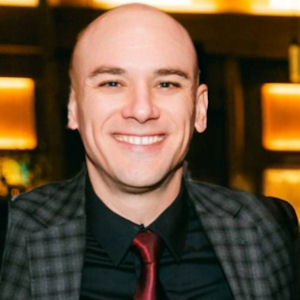Obsessive-compulsive disorder (OCD) affects millions of people, yet many don’t fully understand what it is or how it impacts daily life. If you’re searching for OCD treatment in Orange County, you’re likely dealing with unwanted thoughts and repetitive behaviors that interfere with your routine. Understanding your options can help you find the right path forward.
At 449 Recovery, we provide comprehensive mental health care for individuals facing OCD and co-occurring disorders. Our evidence-based approach combines specialized therapies with compassionate support to help people reclaim their lives from OCD’s grip.

Obsessive-compulsive disorder is a mental health condition where people experience unwanted thoughts (obsessions) and feel compelled to perform repetitive actions (compulsions) to reduce anxiety. According to the National Institute of Mental Health, about 1.2% of adults in the United States have OCD in any given year.
The cycle works like this: an intrusive thought creates anxiety, the person performs a ritual to feel better, and the relief is temporary. Soon, the thought returns, and the cycle repeats. Common obsessions include fears about germs, harm coming to loved ones, or things being “just right.” Compulsions might involve excessive hand-washing, checking locks repeatedly, or arranging objects in a specific order.
OCD differs from everyday worries or preferences for cleanliness. The thoughts are intrusive and distressing, while the behaviors consume significant time—often an hour or more daily. Many people with OCD recognize that their thoughts and actions don’t make logical sense, but they feel unable to stop.
Signs you might have OCD
OCD symptoms vary widely, but certain patterns emerge frequently. Recognizing these signs can help you understand whether a professional evaluation might be helpful.
Obsession patterns often include:
– Contamination fears: Excessive worry about germs, dirt, or chemicals
– Harm obsessions: Intrusive thoughts about hurting yourself or others
– Symmetry concerns: Needing things arranged in a particular way
– Taboo thoughts: Unwanted sexual, religious, or violent images
Compulsion patterns typically involve:
– Cleaning rituals: Washing hands until they’re raw or cleaning surfaces repeatedly
– Checking behaviors: Verifying locks, appliances, or homework multiple times
– Counting or repeating: Performing actions a specific number of times
– Mental rituals: Silently reviewing events or saying phrases to neutralize bad thoughts
Some people experience “pure O” OCD, where compulsions happen mentally rather than through visible actions. These individuals might spend hours analyzing thoughts, seeking reassurance online, or performing mental rituals.
Contact 449 Recovery Today!
Find The Help You Need By Reaching Out To Us Today!
How exposure and response prevention works
Exposure and response prevention (ERP) is the gold standard treatment for OCD. This approach gradually exposes people to their fears while preventing the compulsive response. The International OCD Foundation reports that 60-70% of people with OCD improve significantly with ERP therapy.
Here’s how ERP typically works: you start with less anxiety-provoking situations and gradually work up to more challenging ones. For someone afraid of contamination, early exposures might involve touching a slightly dirty surface, while later ones could include using a public restroom without excessive cleaning afterward.
The key is learning that anxiety decreases naturally without performing compulsions. This process, called habituation, teaches your brain that the feared consequences rarely occur. ERP requires guidance from therapists trained specifically in OCD treatment, as the approach differs significantly from general anxiety therapy.
Many Orange County mental health centers offer ERP, including specialized programs in Costa Mesa, Newport Beach, and Huntington Beach. 449 Recovery incorporates ERP into comprehensive treatment plans, especially for individuals with co-occurring substance use disorders.
Cognitive behavioral therapy for OCD
Cognitive behavioral therapy (CBT) for OCD focuses on changing thought patterns that fuel obsessions and compulsions. Unlike ERP’s behavioral focus, CBT examines the beliefs and interpretations that make intrusive thoughts so distressing.
CBT helps people recognize cognitive distortions common in OCD, such as thought-action fusion (believing thoughts can cause harm) or inflated responsibility (feeling responsible for preventing unlikely disasters). Through structured exercises, people learn to challenge these beliefs and develop more balanced thinking patterns.
The therapy typically includes homework assignments, thought records, and behavioral experiments. Sessions might involve examining evidence for and against feared outcomes or testing predictions about what happens when compulsions are delayed.
CBT and ERP often work together effectively. While ERP addresses the behavioral cycle, CBT tackles the underlying thought patterns that maintain OCD symptoms. This combination approach is available through various therapists for OCD throughout Orange County.

Medication options for OCD
Medications can significantly reduce OCD symptoms, particularly when combined with therapy. Selective serotonin reuptake inhibitors (SSRIs) are the first-line medication treatment for obsessive-compulsive disorder.
Common SSRIs prescribed for OCD include:
– Fluoxetine (Prozac)
– Sertraline (Zoloft)
– Fluvoxamine (Luvox)
– Paroxetine (Paxil)
These medications typically require higher doses for OCD than for depression or anxiety. Most people notice improvement after 8-12 weeks, though some changes may occur sooner. Clomipramine, a tricyclic antidepressant, is sometimes used when SSRIs aren’t effective.
Medication management for obsessive-compulsive disorder involves regular monitoring and dosage adjustments. Orange County residents can access psychiatric services through various mental health treatment centers, including those offering integrated care for co-occurring conditions.
Intensive outpatient programs in Orange County
Intensive outpatient programs (IOPs) provide structured treatment several times per week without requiring residential stays. These programs work particularly well for moderate to severe OCD symptoms that haven’t responded to weekly therapy.
IOPs typically include daily or near-daily ERP sessions, group therapy, family education, and medication management. The concentrated approach allows for more rapid progress than traditional weekly sessions. Programs usually last 2-4 weeks, with step-down options for continued support.
Several Orange County locations offer OCD-specific IOPs, including facilities in Costa Mesa, Fountain Valley, and Santa Ana. 449 Recovery provides intensive outpatient treatment that addresses both OCD and substance use disorders simultaneously, recognizing that these conditions often occur together.
Finding quality OCD treatment in Orange County
Quality OCD treatment centers demonstrate specific characteristics that set them apart from general mental health facilities. Look for programs that specialize in anxiety and OCD treatment rather than general therapy services.
Key indicators of quality care:
– Specialized training: Therapists certified in ERP and CBT for OCD
– Evidence-based approaches: Programs using treatments proven effective in research
– Outcome tracking: Centers that measure and report treatment success rates
– Family involvement: Programs that educate and support family members
Orange County offers numerous options, from private practice OCD specialists to comprehensive mental health treatment centers. The Commission on Accreditation of Rehabilitation Facilities (CARF) and the California Department of Health Care Services licensing provide quality assurance for treatment programs.
FAQs about OCD treatment in Orange County
Dual diagnosis treatment addresses both conditions simultaneously through integrated care. Clinicians trained in both OCD and addiction treatment coordinate therapies to ensure each condition receives appropriate attention without interfering with the other’s treatment.
Most major insurance providers in Orange County cover OCD treatment, including Anthem Blue Cross, Blue Shield of California, Cigna, Aetna, and UnitedHealthcare. Coverage varies by plan, so verification of benefits helps determine specific costs and coverage limits.
Most people notice some improvement in OCD symptoms within 4-6 weeks of consistent ERP therapy, with significant changes often occurring by 12-16 weeks. Progress depends on symptom severity, treatment consistency, and individual factors.
Orange County has numerous mental health professionals trained specifically in OCD treatment, multiple specialized treatment centers, and a supportive recovery community. The area offers both intensive programs and ongoing maintenance therapy options.

Getting started with OCD treatment
Effective OCD treatment combines evidence-based therapies with ongoing support from qualified professionals. Orange County mental health services include specialized programs designed specifically for obsessive-compulsive disorder, offering hope for those who have struggled with symptoms.
Recovery from OCD is possible with proper treatment. The combination of exposure and response prevention, cognitive behavioral therapy for OCD, and, when appropriate, medication management provides a comprehensive approach to symptom reduction and improved quality of life.
At 449 Recovery, we understand that OCD often occurs alongside other mental health conditions or substance use disorders. Our integrated approach addresses all co-occurring conditions simultaneously, providing the comprehensive care needed for lasting recovery. Contact 449 Recovery today for a confidential consultation or to begin the admissions process. Your journey toward freedom from OCD can start right here in Orange County.

Dr. Warren Taff MD, graduated from the University of Birmingham, England School of Medicine, with a BA from Rutgers University. He then went on to UCLA School of Public Health in Los Angeles Health and Human Services and received an MPH. He also attended an internship in internal medicine, with the Veterans Administration. Dr. Taff’s residency includes General Psychiatry at USC, with elective residencies at the Royal Prince Alfred Hospital in Sydney, Australia, and Royal College of Psychiatry. Board certifications include American Board of Psychiatry and Neurology. Dr. Taff has extensive experience in both psychiatry and addiction medicine, extending from 1979 to present. He has held professional titles that include Chief of Staff and Medical Directorship in both hospitals and private sectors.





